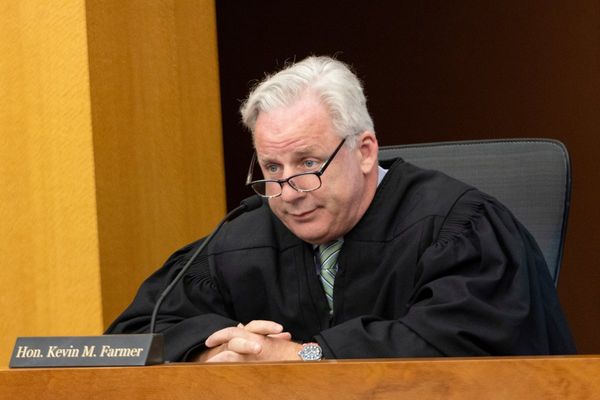
Sweimeh (Jordan) (AFP) - Leaders from the Middle East and beyond pledged Tuesday to support Iraq's "stability" and called for Baghdad to distance itself from foreign influence, at a summit aimed at helping resolve regional crises.
Iraq has been caught for years in a delicate balancing act between its two main allies, the United States and Iran, and Baghdad only recently arrived at a fragile compromise government after a year of political stalemate.
The "Baghdad II" meeting in Jordan, which also included officials from France and the European Union, followed an August 2021 summit in Iraq's capital organised at the initiative of French President Emmanuel Macron.
Summit participants said they would continue to "cooperate with Iraq to support its stability, sovereignty and the democratic process in the country", a final statement read.
They also vowed to support "Iraq's efforts to establish dialogue as a way of resolving regional crises".
The conference was a test for Iraq's new Prime Minister Mohammed Shia al-Sudani, considered closer to Iran than his predecessor, and who was appointed in October after more than a year of political deadlock.
Sudani committed to "balanced relations with all regional and international partners".
'Pivotal role'
Iraq has endured nearly two decades of turmoil since the US-led invasion toppled dictator Saddam Hussein in 2003.
The jihadist Islamic State group seized roughly one third of Iraq and declared a "caliphate" in 2014, before its defeat more than three years later.
Pro-Iran parties now dominate Iraq's parliament, and in October they named Sudani as prime minister following a year-long tussle with their Shiite rivals.
"Iraq today is the scene of influences, incursions, destabilisations that are linked to the entire region," Macron told the summit, in the Jordan's Dead Sea resort of Sweimeh.
"There is a way that is not...a form of hegemony, imperialism, a model that would be dictated from outside," Macron added.
Jordanian host King Abdullah II emphasised "Iraq's pivotal role" in maintaining regional "stability", while Egyptian President Abdel Fattah al-Sisi emphasised his country's "rejection of all foreign interventions in Iraq".
Saudi Foreign Minister Prince Faisal bin Farhan, whose country is Iran's main regional rival, said Riyadh would stand "by Iraq's side to preserve its stability and sovereignty".
'No one expects miracles'
Several countries in the region are also mired in unrest.Syria remains a battleground for competing geopolitical interests, and Lebanon is stuck in an economic and political quagmire.
Iran supports Syrian President Bashar al-Assad's regime and Huthi rebels in Yemen, and holds sway in Lebanon through the powerful Shiite group Hezbollah.
Riad Kahwaji, director of the Institute for Near East and Gulf Military Analysis, said the summit had "great ambitions" but that "no one expects miracles".
The meeting was also being attended by the EU's top diplomat, Josep Borrell, who has been mediating talks aimed at reviving the 2015 Iran nuclear deal.
Borrell met with Iranian Foreign Minister Hossein Amir-Abdollahian, talks the EU diplomat said were "necessary...amidst deteriorating Iran-EU relations".
French Foreign Minister Catherine Colonna said she also met with Amir-Abdollahian, when she "mentioned the delivery of drones to Russia" for its war in Ukraine.
For over three months, Iran has bloodily suppressed a wave of popular demonstrations sparked by the September 16 death in custody of Mahsa Amini, a 22-year-old Iranian woman of Kurdish origin.
Borrell said he had stressed the "need to immediately stop military support to Russia and internal repression in Iran", agreeing to "keep communication open".
Tehran has accused Western countries and regional rival Saudi Arabia -- with which it has had no diplomatic relations since 2016 -- of fomenting unrest in Iran as protests rage on.
Ahead of the summit, Iran's Amir-Abdollahian said Tehran was "ready to return to normal relations" with Riyadh "whenever the Saudi side is ready".
On Tuesday, he "condemned the approach of Western countries consisting of supporting rioters and imposing illegal sanctions".







